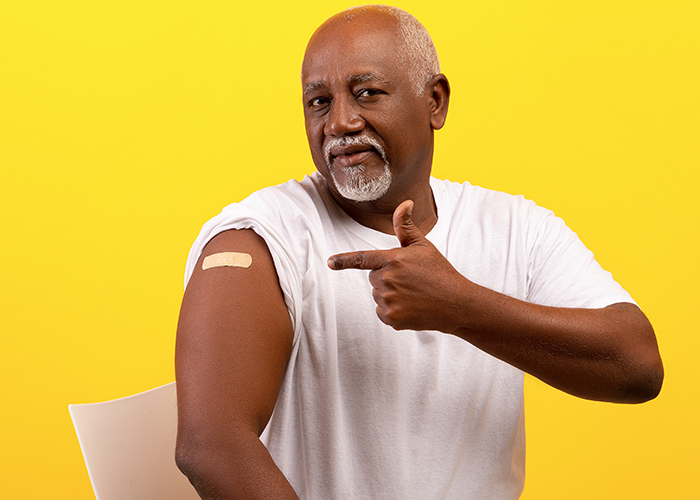Staying Protected: What Vaccines Do Seniors Need?

As we age, our immune systems naturally weaken, making older adults more vulnerable to certain illnesses and complications. That’s why staying up to date on recommended vaccinations is such an important part of healthy aging.
August is National Immunization Awareness Month, and an ideal time for seniors and their families to check in on vaccine status, understand what’s recommended, and take steps to stay protected.
No matter if you’re caring for a parent or planning ahead for yourself, now is the time to prioritize preventive health.
Table of Contents
Why Vaccines Matter for Older Adults
Vaccines are not just for kids, adults over the age of 65 face a higher risk of serious illness and hospitalization from infections that are often preventable. Vaccines can:
- Help prevent illness or reduce severity
- Lower the risk of hospitalization and complications
- Help protect people around you, including grandchildren
- Keep chronic conditions like diabetes or heart disease from worsening after infection
For older adults, vaccination is a simple yet powerful tool to maintain independence and avoid serious health setbacks.
Recommended Vaccines for Seniors
The Centers for Disease Control and Prevention (CDC) provides guidelines on which vaccines are recommended for older adults. Here are some of the most important ones:
- Flu (Influenza) Vaccine
Given annually, usually in the fall. Seniors are at increased risk of complications from the flu, including pneumonia, hospitalization, and even death. High-dose flu vaccines are often recommended for those 65 and older.
- Shingles (Herpes Zoster) Vaccine
The shingles vaccine (Shingrix) is recommended for adults age 50 and up, even if they’ve had shingles in the past. This two-dose vaccine helps prevent shingles and the painful nerve condition known as postherpetic neuralgia.
- Pneumococcal Vaccine
This protects against pneumococcal disease, which can cause pneumonia, bloodstream infections, and meningitis. Adults 65 and older should receive one or more types of this vaccine based on their health history. - RSV (Respiratory Syncytial Virus) Vaccine
Approved more recently, the RSV vaccine is now available for adults over 60. RSV can lead to severe respiratory illness, especially in people with underlying health conditions or weakened immune systems. - COVID-19 Vaccine
Keeping up with recommended COVID-19 boosters remains important, especially for older adults. Consult your healthcare provider about the most current guidance.
How to Stay Current on Immunizations
It’s easy to lose track of which vaccines are needed and when. The best approach is to speak with a primary care provider during regular checkups and ask about you or your loved one’s vaccine record. Keep a written record or use a digital health app to stay organized.
If mobility or memory challenges make it difficult to manage appointments or follow-up doses, having support can make a big difference.
How Always Best Care Can Help
At Always Best Care, we understand that managing healthcare appointments, transportation, and follow-ups can be overwhelming, especially for seniors living alone or family caregivers juggling many responsibilities.
Our compassionate in-home caregivers can assist by:
- Providing appointment reminders
- Helping with transportation to and from the doctor’s office or clinic
- Coordinating with family members or healthcare providers
- Tracking follow-up dates for multi-dose vaccines like Shingrix
- Offering peace of mind that nothing important is missed
By providing personalized support, we help seniors remain independent while staying on top of their health.
Make Preventive Care a Priority
National Immunization Awareness Month is the perfect time to check in and take action. A few simple steps today can help prevent illness and protect long-term health tomorrow.
If you or a loved one needs support at home—from help with appointments to companionship and daily care—Always Best Care is here to help.
Contact us at (855) 470-2273 to schedule your care consultation and learn how our professional caregivers can support a safer, healthier lifestyle.





